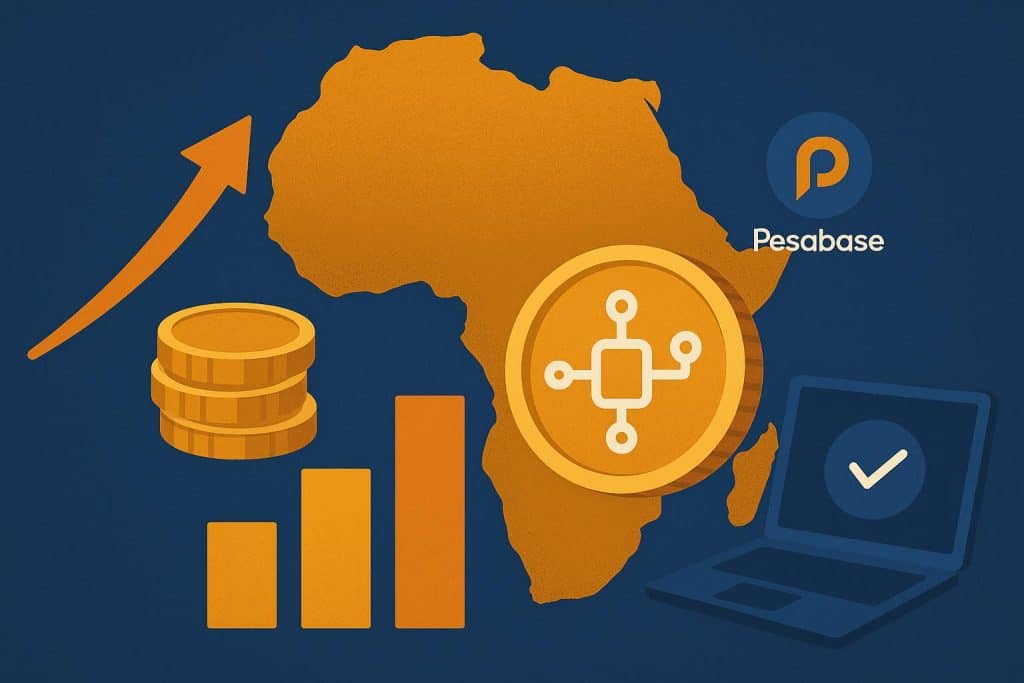Blockchain technology is opening up new possibilities for Africa’s financial sector. One of the most promising innovations is Real-World Asset (RWA) tokenization in Africa, which involves converting physical assets—like real estate, commodities, and even small businesses—into digital tokens on a blockchain. These tokens are tradeable, accessible, and offer enhanced liquidity, which is crucial for Africa, where many people lack access to traditional banking and financial markets.
In this article, we explore how RWA tokenization is transforming Africa’s economy, the challenges, and the role of platforms like Pesabase in supporting this change.
What Is RWA Tokenization?
RWA tokenization is the process of creating blockchain-based tokens that represent ownership or shares in physical assets. These tokens can be bought, sold, and traded like digital assets, but they are backed by real-world value. Tokenization allows for fractional ownership, meaning investors can buy smaller portions of expensive assets, making markets more accessible.
Key benefits include:
- Liquidity: Unlocking value from traditionally illiquid assets.
- Transparency: Blockchain ensures secure, transparent ownership records.
- Global Access: Tokenized assets can be traded internationally without the barriers of traditional finance.
Why Tokenization Matters for Africa
Africa faces unique challenges that make tokenization especially valuable:
- Financial Inclusion: Over half of Africa’s population is unbanked. Tokenization can give more people access to investment opportunities and financial services.
- Illiquid Assets: Many of Africa’s valuable assets, such as land, real estate, and commodities, are difficult to trade or use for financing. Tokenization can make these assets more liquid and accessible to investors.
- SME Financing: Small businesses often struggle to access capital. Tokenizing revenue streams or invoices allows businesses to raise funds more easily.
Real-World Use Cases in Africa
- Real Estate: Tokenization makes it easier to invest in property by allowing fractional ownership, making the market more inclusive and less reliant on traditional financing.
- Agriculture: Farmers can tokenize crops and land to access capital and trade in global markets, improving supply chain transparency and fairness.
- Natural Resources: Tokenizing resources like gold and oil opens up more liquid and transparent markets, attracting global investors and preventing illegal activities.
- SMEs: Small businesses can tokenize future earnings or invoices, providing a decentralized way to access financing.
Pesabase’s Role in RWA Tokenization
Pesabase is a blockchain-powered remittance platform currently operating in South Sudan. While it doesn’t directly engage in tokenization, Pesabase can help facilitate RWA transactions by enabling fast, low-cost, cross-border payments.
How Pesabase Supports Tokenization:
- Seamless Cross-Border Payments: Pesabase allows investors and asset owners to send and receive payments quickly and affordably, which is critical for tokenized transactions across borders.
- Bridging Fiat and Digital Assets: Pesabase can connect traditional fiat currency systems with blockchain-based digital assets, making it easier for people to engage in tokenized transactions.
- Financial Inclusion: By offering affordable remittance services, Pesabase helps unbanked individuals and businesses participate in the digital economy, supporting the adoption of tokenized assets.
Challenges and Future Outlook
While tokenization holds immense potential, there are hurdles to overcome:
- Regulatory Uncertainty: Many African governments have yet to establish clear rules around tokenized assets and blockchain.
- Technological Barriers: Limited internet access and blockchain education may slow adoption, particularly in rural areas.
- Market Trust: Building confidence in blockchain and tokenization will require time, education, and regulatory clarity.
Despite these challenges, tokenization offers significant opportunities for growth, inclusion, and innovation. With the right infrastructure and partnerships, Africa is poised to lead the way in digital finance.
Conclusion
RWA tokenization is a game-changer for Africa, unlocking new opportunities for investment, financial inclusion, and economic development. Platforms like Pesabase are helping to lay the groundwork for this transformation by providing essential remittance services that support tokenized transactions. While challenges remain, the potential for tokenized assets to reshape Africa’s financial landscape is undeniable.
